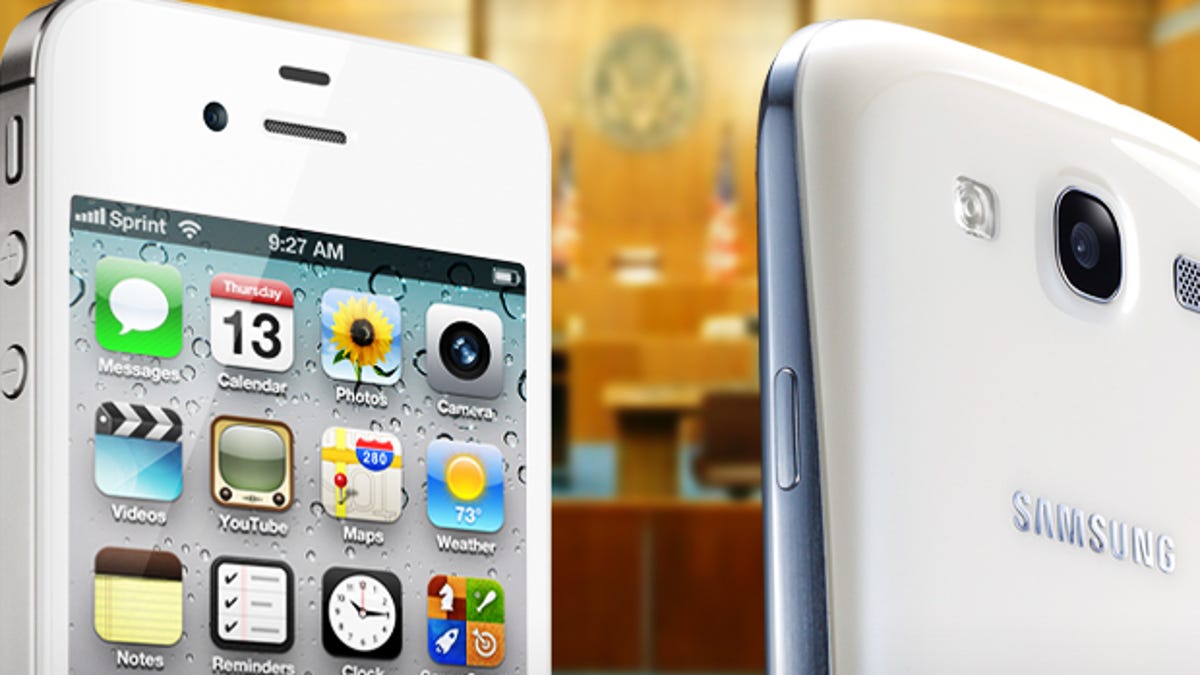Samsung in Apple patent talks: Rock vs. hard place
Now we know that Apple came to Samsung to offer it a deal to license its patents, but it's not that simple. There were "untouchables."

SAN JOSE, Calif. -- Whether or not you agree that Samsung copied the look and feel of Apple's products, it's now clear that Apple put the company in a difficult position when it first accused Samsung of copying.
In testimony here today, Boris Teksler, Apple's director of patent licensing and strategy, noted that while Apple initially approached the company to accuse it of copying its products and infringing on a multitude of its patents, Apple would not outright license any of those main patents to another company.
"We were clear we weren't offering a license to everything," Teksler said. "We had yet to discuss some what we termed 'untouchables,' if you will."
As Teksler explained during his testimony last week, those "untouchables" comprise a tier of patents it would not share with others -- something it considered made up its "unique user experience."
With that said, Teksler claimed that the company wanted to make a deal.
"We were trying very hard to come up with an amicable resolution with Samsung," he said. "We wanted to get properly compensated for that which was infringed, and with respect to our unique user experience. That's exactly what we were trying to do with this presentation."
Samsung's lawyers were keen to point out that Apple had not made mention of its design patents at the time it came to Apple with the presentation -- the same point it made last week. Teksler responded by saying that some of those patents were still pending at the time of the meeting, and were granted between that time and when the two companies filed suits against one another.
Of note, Teksler said that Apple's long-running cross-licensing deal with Microsoft allowed the Windows maker access to all the patents in this case, including the design patents. With that said, there are specific rules in place with that deal to keep the two sides in check so that they don't make what Teksler referred to as a "clone" product.
"There's a clear acknowledgment that there's no cloning," he said.
Samsung's turn
This week marks a turning point in the trial, with Samsung scheduled to take the reins. The trial began with Apple on the offensive, calling up a list of witnesses that included company designers, top executives, and various experts of design and marketing. Apple's main message: Samsung stole our designs, and profited off it.
Next it's Samsung's turn. The company has its own list of witnesses to help make its case, though it's already burned up more of its allotted time than Apple. Both sides get 25 hours, and at the end of last week Apple was up about 11.5 hours, with Samsung pushing beyond 12.
Unlike the two previous weeks of trial, in which court was in session three days out of five, this week goes all five days. According to U.S. District Court judge Lucy Koh, who is presiding over the case, that means the trial will wrap up by the end of this week or early next week. Both sides are expected to begin their closing arguments next Tuesday. After that, the jury gets its instructions and has time to deliberate.
Complete coverage: Apple v. Samsung, a battle over billions

